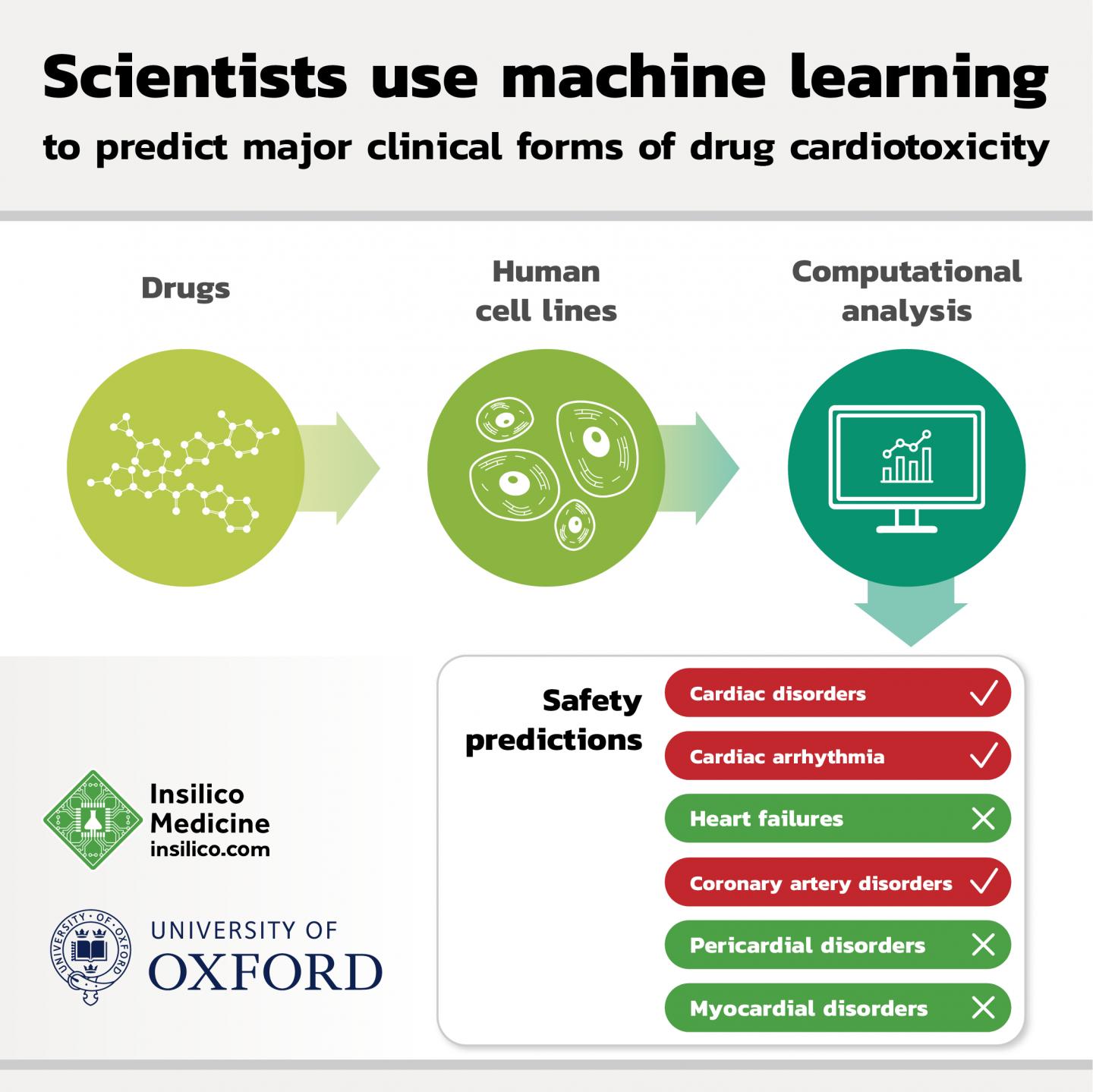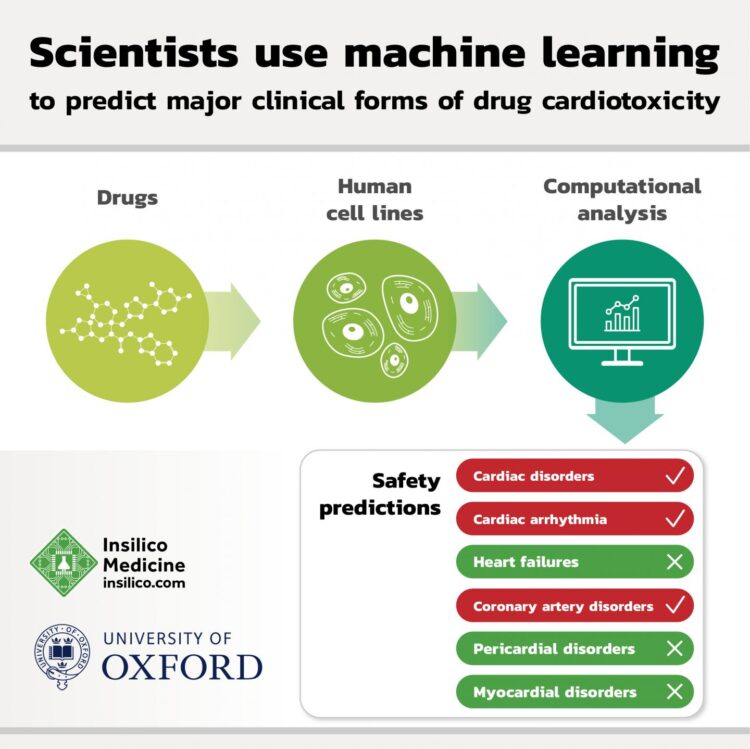
Credit: Insilico Medicine
June 9, 2020 – We announce the publication of a new research paper titled ‘Dual transcriptomic and molecular machine learning predicts all major clinical forms of drug cardiotoxicity’ in Frontiers in Pharmacology. The study was conducted in a collaboration between the Computational Cardiovascular Science Group of the University of Oxford and Insilico Medicine.
‘Drug-induced adverse effects on the heart are a very important problem, as highlighted recently in the news regarding COVID-19 treatments. In this study, we are very excited to show how our machine learning algorithm can identify drugs that can cause 6 potential forms of cardiac adverse outcomes from gene expression data’, said Professor Blanca Rodriguez.
‘Thanks to the increasing power of computers and algorithms to learn, this work represents an exemplar of how AI will revolutionise the future of drug development and safety evaluation in the pharma industry. It extends previous efforts in the field to predict not only the likelihood of a drug to induce lethal arrhythmias, but all the main cardiac adverse events associated with drug action. It also establishes the need for stringent testing criteria for the effective application of AI to this critical domain of the life sciences’, said Professor Alfonso Bueno-Orovio.
Computational methods can increase the productivity of drug discovery pipelines, through overcoming challenges such as cardiotoxicity identification. In this paper, researchers demonstrated the simultaneous prediction of cardiotoxic relationships for six drug-induced cardiotoxicity types using a machine learning approach on a large collected and curated dataset of transcriptional and molecular profiles. The algorithm generality is demonstrated through validation in an independent drug dataset, in addition to cross-validation.
Alex Zhavoronkov, founder and CEO of Insilico Medicine comments, ‘Drug-induced cardiotoxicity is one of the reasons for late-stage clinical trial failures. We see the Rodriguez group at Oxford as the world’s main source of accurate cardiotoxicity predictors. The results of their work are adopted by the FDA, and many pharmaceutical companies. We are very happy to collaborate on AI-powered multi-omics cardiotoxicity prediction engines, and have one of our top AI scientists, Polina Mamoshina, defend her doctorate under one of the biggest names in computational biomedicine’.
Polina Mamoshina, is now Senior Research Scientist at Insilico Medicine. She comments, ‘In silico or computational models have made great progress in past years. And one of their great features is that they can be humanized and so have increased chances for translation into drug discovery and development pipelines. The scope of this work was to predict drug adverse reactions that were shown in humans. We believe that this work can be extended to side effects manifested in other organs and tissues and that pipeline that we proposed provides a valuable benchmark for future studies’.
###
Read the original research paper here: https:/
Media Contact
For further information, images or interviews, please contact:
[email protected]
About Insilico Medicine
Since 2014 Insilico Medicine is focusing on generative models, reinforcement learning (RL), and other modern machine learning techniques for the generation of new molecular structures with the specified parameters, generation of synthetic biological data, target identification, and prediction of clinical trials outcomes. Since its inception, Insilico Medicine raised over $52 million, published over 70 peer-reviewed papers, applied for over 20 patents, and received multiple industry awards.
Website http://insilico.
Media Contact
Klug Gehilfe
[email protected]





